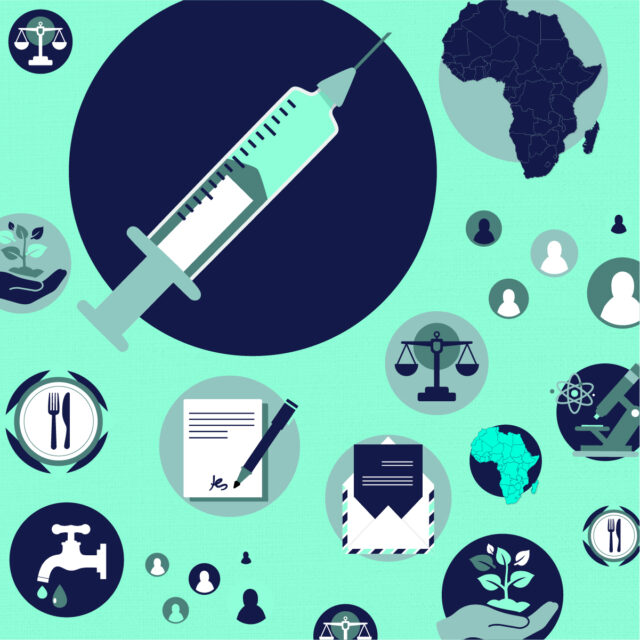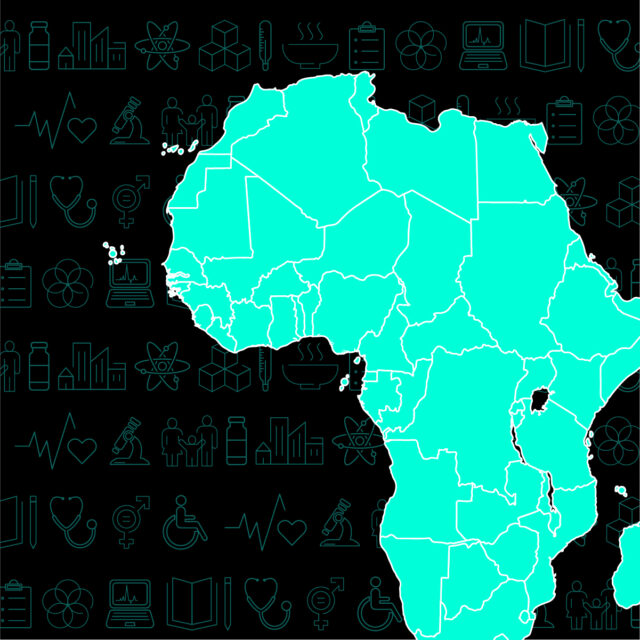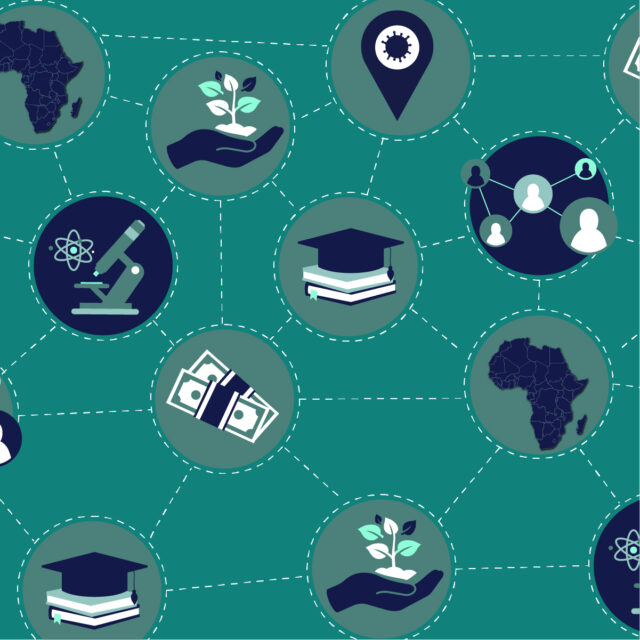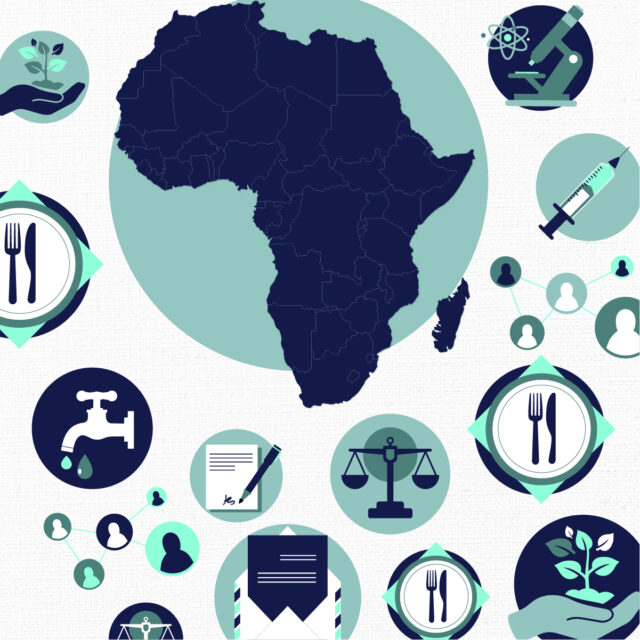TOP NEWS
A coup for COVID: The coup in Burkina Faso threatens to hamper the country’s COVID response and exacerbate the existing humanitarian crisis. Coup leader Paul-Henri Sandaogo Damiba rationalized his move by arguing that President Kaboré failed to defend against jihadist attacks. With the army distracted by efforts to consolidate power, jihadists may be the winners. Only 3.6% of the country’s population is fully vaccinated and over half the population has insufficient food. Increased political instability could worsen the economic and health impacts of the pandemic, further eroding trust in government and setting off a violent feedback loop between instability and COVID.
Brain drain: Around 1,000 healthcare workers move to the United States each month from African countries, the Philippines and the Caribbean, leaving behind countries desperately in need of their skills. Wealthier countries are ramping up overseas recruitment of healthcare workers to fill vacancies as exhausted and frustrated workers leave the profession during the pandemic. Eighty countries have seen strikes and other labor action by health workers in the past year – the number usually seen in a decade. Meanwhile, wealthy nations have 10 times more nurses (population proportionate) compared to poor ones. The Africa CDC has called for a plan to strengthen the continent-wide health care system, with a focus on enticing diaspora healthcare workers to return home. Wealthy countries must also do their part by adhering to the WHO’s Global Code of Practice.
Deflated expectations: Inflation and Omicron’s proliferation will limit global growth to just 4.4%, according to a new report by the IMF, substantially downgrading previous projections. Supply chain bottlenecks have already taken 0.5-1% off predicted growth. The IMF emphasized the importance of achieving world vaccine targets to address economic issues. While some have optimistically suggested that Omicron’s rampant spread could bring an end to the pandemic in Europe, the weakened economic outlook provides a stark reminder that we’re far from out of the woods.
Sachet economy: Merchants in Nigeria are repackaging standard quantities of goods into smaller sachets, or bags, as soaring prices make household items increasingly unaffordable. Women are paying a compounded price in this ‘sachet economy’: sanitary packs have been reduced to two pads from eight (hint to our male readers: that’s not nearly enough), and mothers are struggling to afford sufficient food to feed their children. Concern over inflation’s toll on citizens led President Buhari to extend fuel subsidies originally set to expire by year’s end. Meanwhile, inflation in Ethiopia is the highest it’s been in a decade, as the 14-month civil war adds pressure to an economy already hit hard by COVID-19.
Lethal findings: Once hospitalized, children under 1-year old in sub-Saharan Africa are nearly 5 times more likely to die from COVID-19 than teenagers, according to a new study. The 8% mortality rate among children in Africa is considerably higher than the 1%-5% mortality rate of children in high-income countries. Researchers have called for a coordinated vaccination campaign for young children in the region. Except for South Africa, the countries that provided data for the study have vaccination rates below the continent’s 10.5% average, highlighting the urgent need to increase vaccination levels.
Pandemic abuse: Domestic violence in Kenya has increased by a jaw-dropping 300% during the pandemic. Women reliant upon their partners’ income are left trapped and unable to afford basic necessities. The issue is widespread, with UN Women reporting increases in calls to domestic violence helplines across numerous countries.
Bad business: Nearly two-thirds of COVID equipment contracts awarded by the South African government were found to be “irregular, unlawful or fraudulent” in a newly released report by the country’s Special Investigation Unit. These deals, worth 14.3 billion rand ($935 million), were ostensibly for hospital equipment and the provision of public health services. President Cyril Ramaphosa condemned this “unacceptable” corruption – a tone that hopefully encourages the country’s National Prosecuting Authority to file criminal charges against those responsible.
Misinformation peddlers: A group of radical science-deniers from the US, UK, Australia and the Netherlands are spreading dangerous anti-vaccine, anti-mask and anti-lockdown misinformation in Uganda. Their propaganda backs the Ugandan ‘End Lockdowns Now’ movement, which emerged in response to the country’s COVID lockdown, one of the world’s longest and toughest (which Uganda lifted this week). Just 4% of Ugandans are fully vaccinated and COVID recently became the second-leading cause of death in the country, so those who truly want freedom from the pandemic should be doubling down on proven measures – not propagating dangerous misinformation.
Fresh outta cash: COVAX has reached a laudable milestone of 1 billion doses delivered – but it’s just half of what it promised to deliver in 2021. To make matters worse, COVAX is out of cash, unable to provide new doses unless it receives $5.2 billion to finance syringes and other accessories needed to administer vaccines. Perhaps if COVAX hadn’t been price gouged over the last year this wouldn’t be happening. Also worrying is COVAX’s uneven dose distribution: 17 countries in sub-Saharan Africa only received enough doses to cover less than 10% of their populations through COVAX, while other countries received enough to vaccinate 40%.
Have elephant, need plan: There was a *giant* elephant in the room as the UN Global Goals events at the Dubai Expo wrapped up last week: vaccine inequality. Despite being one of the world’s most pressing problems, discussions on COVID vaccines were largely absent (with notable exceptions from former Prime Minister of New Zealand Helen Clark, Microsoft co-founder Bill Gates, and groups of activists). Calls for international solidarity are great, but a multilateral plan to end the pandemic remains missing in action. Our eyes are on the upcoming EU-AU Summit and the US-hosted COVID Summit as vital moments for leaders to scale up ambition and creativity.
FROM THE ONE TEAM:
- ONE’s January roundup on leaders’ pandemic promises and how they’re actually doing, via the team behind our Pandemic Report Cards.
- ONE’s David McNair spoke with RN Breakfast about why a global strategy is needed to end the pandemic in the face of travel bans.
- With Ukraine in the headlines this week, we highlighted the contrast in how quickly G7 countries can share weapons vs. vaccines in this satirical video.
THE NUMBERS:
- 10 billion COVID-19 vaccine doses have been administered in the world, but only 0.9% have gone to low-income countries.
- Excess deaths from COVID-19 are four times higher in South Africa than in the UK.
- 41.6%: The staggering increase in food prices in Ethiopia compared to this time last year.
QUOTE OF THE WEEK:
“The world cannot afford to be so unprepared ever again.”
— Dr John Nkengasong, Director of the Africa CDC
WHAT YOU SHOULD READ & WATCH:
- The COVID pandemic could drive drug resistance, a boon for superbugs and a problem for everyone else. (NPR)
- The world’s battle with COVID-19 is not yet won, cautions Dr Ayoade Alakija, co-chair of the AU’s African Vaccine Delivery Alliance, noting that the final wave of the Spanish flu of 1918 had its greatest impact on the African continent. (Forbes)
- Boosters may offer waning immunity, but there’s still a solid case for their administration. (NPR)
- There will be another variant. Here’s what the world can do now. (New York Times)
- Powerful ideas? Decolonisation and the future of global health (BMJ Global Health)



